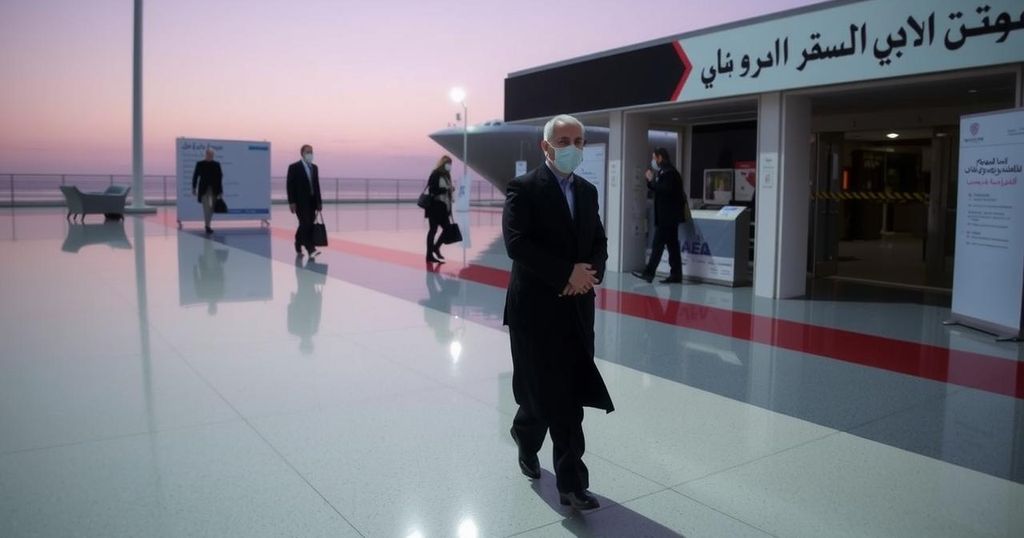Lebanon Confirms Iranian Diplomat’s Funds for Embassy amid Airport Tensions

Lebanon’s Foreign Ministry confirmed funds carried by an Iranian diplomat at Beirut Airport were meant for embassy expenses, reasserting diplomatic protections under the Vienna Convention amid rising tensions. This incident is part of a broader scrutiny of Iranian financial support to Hezbollah, reflecting ongoing challenges regarding Iranian influence in Lebanon.
In light of an incident at Beirut Airport involving an Iranian diplomat who resisted the inspection of his luggage, Lebanon’s Foreign Ministry confirmed that the funds in his possession were allocated for embassy operations. On January 3, the Ministry communicated that upon receiving a formal notification from the Iranian Embassy in Beirut, they permitted the entry of the diplomat’s luggage as per the provisions of the Vienna Convention on Diplomatic Relations.
Iranian media further reported that the Iranian Embassy provided a clarification to Lebanon’s Foreign Ministry, stating that the two diplomatic bags contained “documents and cash for operational expenses of the embassy.” Tensions escalated at the airport when security personnel attempted to conduct searches, resulting in a standoff between officials and the Iranian diplomatic delegation.
According to Al-Alam, a news outlet linked to Iran, the situation intensified when Shia youths affiliated with Hezbollah mobilized to the airport on motorcycles, prompting the Lebanese Army to block surrounding roads. This incident marks the third similar occurrence since November and occurs amidst ongoing struggles for Iranian-affiliated Hezbollah in their conflicts with Israel, as well as a noticeable decline in their political and military strength within Lebanon.
It remains ambiguous if the Lebanese authorities intend to genuinely restrict the influx of Iranian funds and arms to Hezbollah or if their actions are merely for show to appease the United States and Israel regarding their commitment to limiting Tehran’s influence over the militant group.
Reports indicate that not long before, Lebanese officials had cautioned Iranian representatives that any suspicious shipments arriving in Lebanon would be subject to confiscation. On January 2, security officials inspected an Iranian aircraft and its passengers for the second time within a week, reiterating their position regarding cash found on board.
Additionally, reports from Al-Hadath citing Western sources suggested that Iran is engaging in attempts to transfer substantial funds to Hezbollah via Mahan Air flights. Naim Qassem, the Deputy Secretary-General of Hezbollah, previously disclosed that $50 million had been distributed to approximately 233,500 registered displaced Lebanese households, asserting that these funds were sourced from Iran. Qassem mentioned that families whose homes were devastated received support covering their furniture and a year’s rent, indicating a significant financial commitment from Iran to support its proxy.
Notably, similar allegations regarding monetary transfers to Iranian proxy entities have emerged in previous years, underscoring the ongoing financial links and operational support Iran extends to groups like Hezbollah.
The incident at Beirut Airport highlights the ongoing complexities of Iranian diplomatic operations and their implications for regional stability. Since international tensions have risen due to Iran’s involvement with several militant groups, including Hezbollah, the Lebanese authorities face pressure to manage their connections with Iran while adhering to international diplomatic standards. The Vienna Convention provides a framework for addressing diplomatic privileges and immunities, complicating law enforcement responses to potential abuses. Recent developments also illustrate Hezbollah’s increasing reliance on Iranian financial aid amidst a decline in their political power in Lebanon, leading to further scrutiny of financial movements between Iran and its affiliates.
In conclusion, the confirmation by Lebanon’s Foreign Ministry regarding the funds detained at the airport emphasizes the delicate balance Lebanon must navigate between international diplomatic obligations and internal security challenges. As Iranian influence persists in the region, monitoring the financial support provided to Hezbollah will remain critical in understanding the dynamics of Lebanon’s political landscape and its implications for broader geopolitical stability.
Original Source: www.iranintl.com








